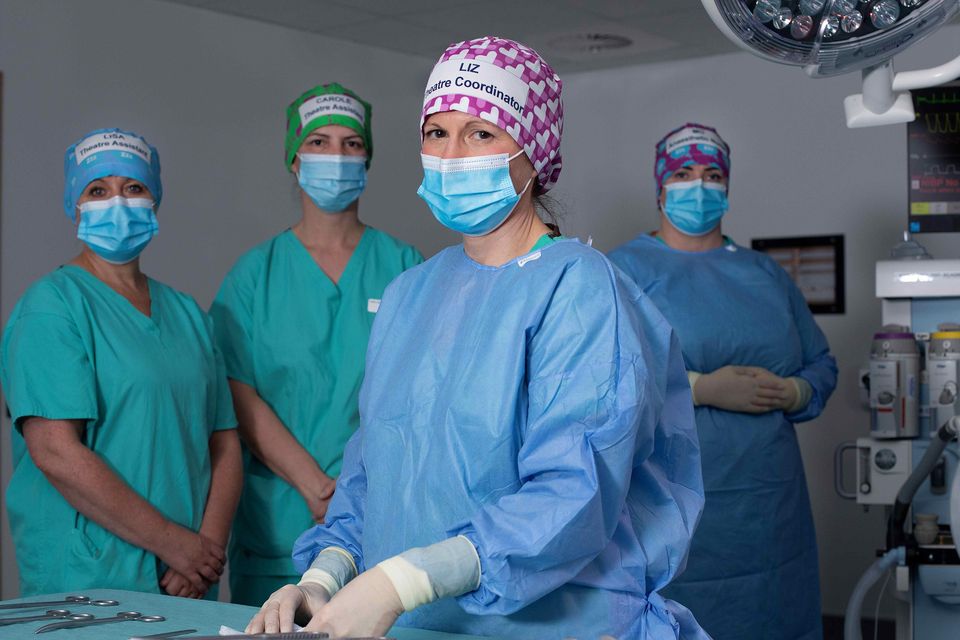A hospital has marked a “crucial step” in addressing medical waste as it trials sustainable theatre caps worn by staff.
The Golden Jubilee University National Hospital in Clydebank, West Dunbartonshire, has helped create theatre caps from plant-based cellulosic fibre in a bid to reduce waste created by single-use disposable caps.
The project was led by researchers from the University of Strathclyde and Heriot-Watt University.
The team says around 800,000 single-use caps are used each year in Scottish hospitals and they may take up to 300 years to decompose, whereas the new caps are biodegradable.
They are also colour-coded for staff in different roles, helping patients and colleagues identify them more easily.
Staff at the hospital will now trial the caps and provide feedback to find if they can be rolled out across Scotland.
It is part of the broader Design Hopes (Healthy Organisations in a Place-based Ecosystem, Scotland) project, led by Professor Paul Rodgers of the University of Strathclyde and Professor Mel Woods from the University of Dundee.
The project was recently awarded £4.6 million by the Arts and Humanities Research Council as one of four Green Transition Ecosystem hubs in the UK, which aims to address climate change issues.
Medical staff can be more easily identified by patients and colleagues with the caps (Marsaili Mainz/PA)
Dr Euan Winton, assistant professor of design at Heriot-Watt, said: “NHS Scotland faces massive resource-driven issues, with millions of single-use disposable theatre caps going to incineration in Scotland annually.
“The new sustainable theatre caps represent a crucial step in addressing this significant wastage and demonstrating the power of design in tackling environmental challenges in healthcare.
“Our specialist School of Textiles and Design in the Scottish Borders is proud to be part of the Design Hopes hub tackling a broad range of global challenges, using our expertise to find new and innovative solutions to sustainability.”
Carole Anderson, director of transformation, strategy, planning and performance at NHS Golden Jubilee, added: “NHS Golden Jubilee is proud to be at the forefront of this sustainable innovation in healthcare.
“These new theatre caps align with our commitment to reducing our environmental impact and also enhance our ability to provide safe and high-quality patient care.
“By improving staff identification and potentially easing patient anxiety, these caps offer multiple benefits beyond their eco-friendly design.”
Prof Rodgers said he is confident the theatre caps will help drive a positive change towards net zero.
He said: “This project showcases the power of collaboration between universities, healthcare providers and design researchers.
“By bringing together expertise from various fields, we’ve been able to create a solution that is both practical and sustainable.
“Moreover, this project has potential for creating new green jobs across Scotland that will have socio-economic as well as environmental impact.”
